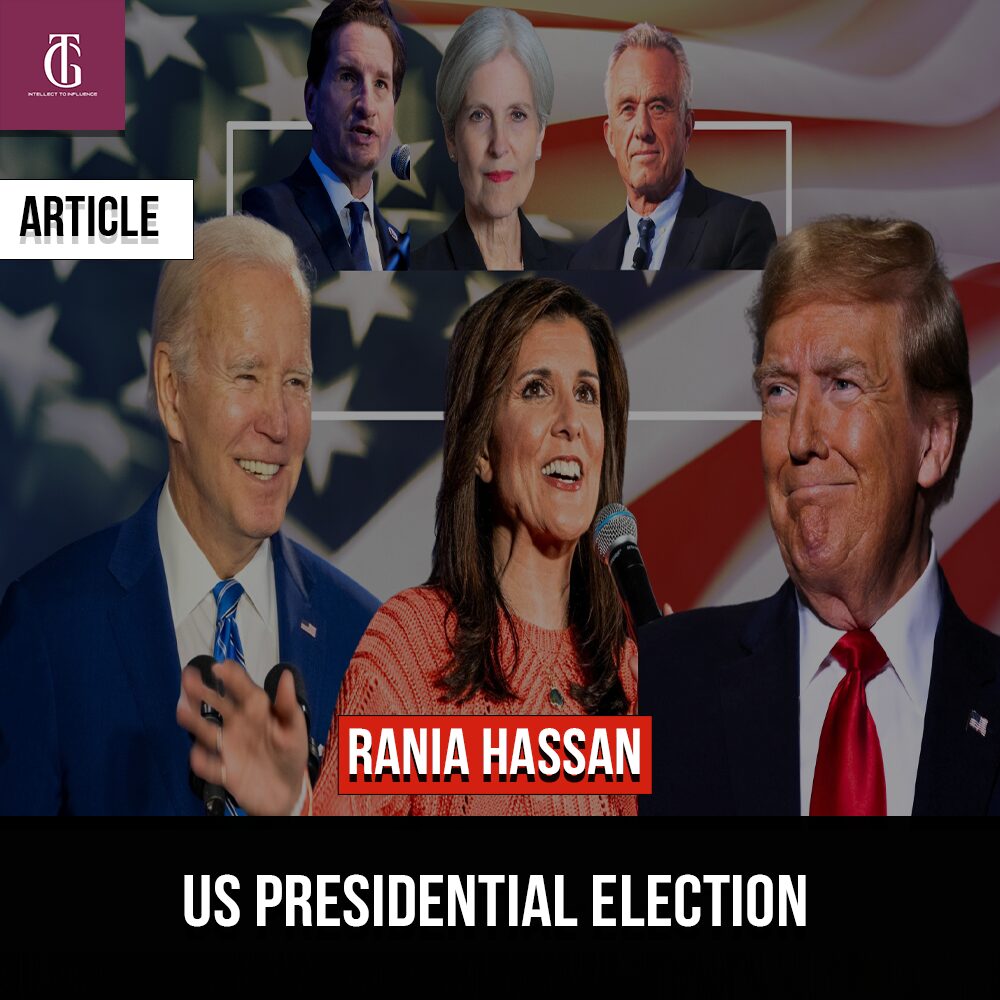Some election matters more than others. The next US presidential election will be on Tuesday, 5 November 2024. The US election generates global interest for two reasons. First, America continues to be the largest economy, with considerable military and strategic heft. Because of its strategic and economic significance, the US presidential election season, which includes the Republican debate and the Iowa caucuses, attracts attention from around the world. Other nations, especially middle-sized powers like India and its soft power in the English-speaking world will be impacted by the election.
The US political system today is dominated by just two parties, so every President in modern times has belonged to one of them. The Democratic Party, known for its donkey logo, advocates for a strong government, social responsibility, welfare, and heavy taxation for high-income households. They support government-funded healthcare, women’s rights, LGBTQ+ rights, and gun legislation while valuing separation between church and state. The Democrats are the liberal political party, with an agenda defined largely by its push for civil rights, a broad social safety net and measures to address climate change.
It is a Party of incumbent President Joe Biden, who is trying to secure a second term in power. The other one is the Republican Party which is often referred to as the GOP (Grand Old Party). The Republican Party, a right-leaning political party, advocates for traditional values, low government interference, and private sector support. It promotes family and individual freedom and opposes abortion, gun control, and strong national defense. The Republican leans more towards individual freedom, rights and responsibilities. The Republicans are led by former President Donald Trump.
The winner will serve a term of four years in the house starting in January 2025. One of the biggest polling days is known as Super Tuesday because more than a dozen states all held their primary contest on Tuesday 5 March. President Biden and former President Donald Trump won commanding victories across nearly all the states holding Democratic and Republican nominating contests on Super Tuesday. US democracy and global order will be decided by the results of the presidential election in November.
Despite facing four criminal prosecutions, Trump has secured the nomination. Public unhappiness with immigration concerns and high prices fuel his appeal. His influence even reaches foreign politics, as evidenced by the refusal of numerous Republican lawmakers to support military aid to Ukraine. Political unrest and conflict will persist if the election turns into a contest between Biden and Trump.
In the US political candidates don’t need a majority of votes to be elected, but need a plurality of votes. The Democratic and Republican Parties, the two largest parties, tend to get the majority of votes, leaving smaller parties unsuccessful. Americans aligning with third-party candidates may vote for either party to ensure their vote is used on a candidate with a better chance of winning, maintaining the two-party system. Both candidates compete for 538 Electoral College votes, with the winner being the candidate with 270 or more.
Voters decide state-level contests, so a candidate can win nationally but still be defeated. Most states have a winner-takes-all rule, with battleground states being the dozen or more where either party could win. The 2020 election resulted in a few days of counting votes, followed by a transition period for a new president, where the new administration forms and plans for the term, followed by the president’s inauguration.
Middle East war and American elections:
The Biden administration’s handling of Middle East events in the 2024 presidential contest may be seen as an exception due to American voters’ generally being uninterested in foreign affairs. Support for Israel remains a major concern, especially among young, progressive voters. The White House’s swift response to threats and perceived failure to counter Iranian aggression or terrorism risks criticism from the right. Unpredictable factors like terrorist strikes or direct conflicts with Iran could also impact US foreign and security policy.
Russia-Ukraine conflict and American elections:
A second term for Donald Trump might result in an America-first, America-alone foreign policy that could jeopardize international security. Trump has promised to stop the flow of US funds to Ukraine and to hold European allies accountable for paying back the US$75 billion in help that was promised. There are still questions, though, about whether Trump would follow through on his pledge to end the conflict in a day. It seems likely that the US will no longer be a member of the Ukraine Defence Contact Group, which backs Ukraine’s defense against Russia.
Also, the US committed to train Ukrainian pilots flying F-16 aircraft built in the US and supplied by partners in Europe. Trump’s wishes won’t be enough to stop the war, and any Russian successes might inspire them to retake land in Moldova or the Baltic nations. Because of the importance of the US presidential election for the military, economy, and influence of the Democratic and Republican parties, it is scheduled for November 5, 2024. Trump’s power extends to international politics, and his nomination will define US democracy and the world order. The election may have an effect on US foreign and security policy as well. An America-first, America-alone foreign policy could result from the Russia-Ukraine crisis. Still, doubts about Trump’s resolve to put an end to the fight persist.






